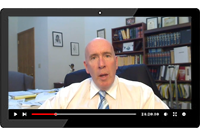So, you bought a used car that’s in excellent condition. The dealer said that it was clean and that it has never been in an accident, but how can you be sure? Before you drive your car off the lot, it’s important to know all the facts.
A recent 2020 Carfax report revealed almost 40% of vehicles driven have been in an accident or sustained damage, while one in four cars are sold within the first year after an accident. That’s approximately 110 million damaged cars on the road.
Discovering the car you’ve just purchased was involved in an undisclosed accident can be alarming. An accident not only impacts the vehicle’s safety and reliability but also its resale value. Vehicles with front-end damage can lead to malfunctions and expensive repairs, while damage to the body of a vehicle can weaken its structural integrity.
If this has happened to you, particularly if you financed the used car and then found out about a previous accident, here’s what you can do.
How a previous accident can impact you down the road
Under California law, car dealerships are prohibited from lying about a vehicle’s previous accident history. If the dealer failed to disclose known material accident damage, you might have a potential auto fraud claim. Even if you didn’t directly ask about the accident history or if the car is under warranty, the dealer is still obligated to disclose any known damage.
What is material accident damage?
Material accident damage refers to significant damage that affects a car’s value, safety, or performance. In auto fraud cases, the seller or dealer tries to pass off a damaged vehicle as being in better condition than it actually is. This includes damage to a vehicle’s frame and body, front-end suspension, electrical systems, flood damage, and more. These damages often result in operational problems such as tire blow-outs, airbag deployment, engine damage, transmission issues and even complete system failure.
If you found out your car was in an accident before you bought it from the dealer, you might be able to take legal action. Here are some steps to take:
- Gather as much information as possible. Make sure to keep copies of any documents, including the sales contract, communications, photos, and inspection reports.
- Get a vehicle history report from services like Carfax or AutoCheck.
- Get a professional independent inspection.
- Contact the seller/dealer and request a resolution, such as a refund, repair, or replacement.
- File a complaint with a consumer protection agency such as the Better Business Bureau (BBB), the National Highway Traffic Safety Administration (NHTSA), State Department of Motor Vehicles (DMV), or Consumer Financial Protection Bureau (CFPB).
- Consult an experienced auto fraud attorney.
If they lied about the car history, what else did they lie about?
Did you purchase a car only to discover later it was in an accident? Or that the dealer charged you more than the advertised price? You may be entitled to relief if you can prove the damage was material, and the dealer knew about the pre-existing damage prior to the sale.
At the Law Offices of Robert F. Brennan, we’re dedicated to helping consumers fight back against deceitful car dealerships. We specialize in auto fraud law and are committed to ensuring that you receive the resolution and compensation you deserve. If your car dealership lied about the car history and you paid more for a defective vehicle, take the first step toward justice – contact us today.


